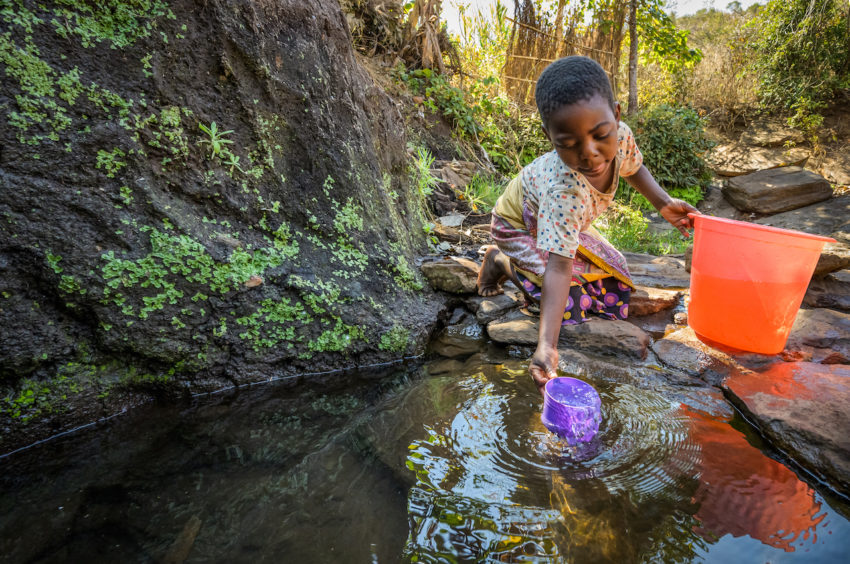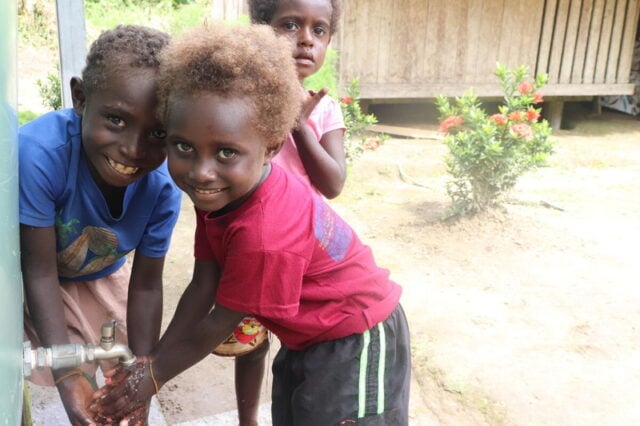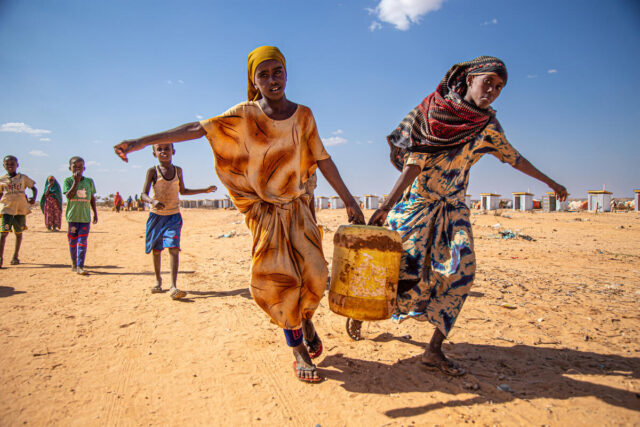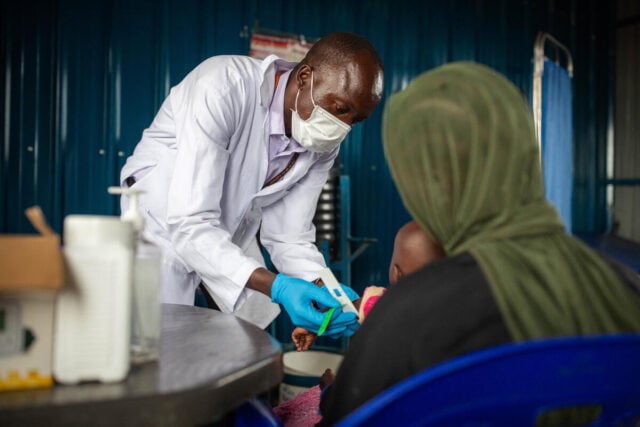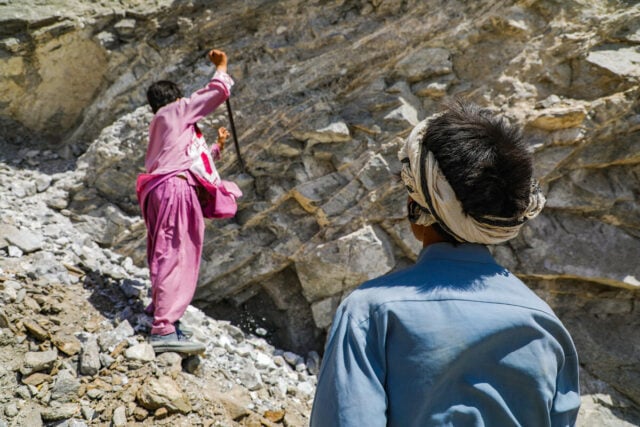The most beautiful of constellations, Orion, hangs low over the village in central Malawi. The stars around it are as uncountable as the grains of sand bordering Lake Malawi, 60 miles away. Far below Orion’s shimmer, a rooster crows — an alarm clock with feathers, strutting through the darkness past a row of huts where adults and children yearn for a few more hours of rest.
Eight-year-old Ireen is fast asleep in her grandmother’s one-room hut. Next door in her mother’s house, her sister, Jekina, 4, stirs as the rooster continues the hullabaloo, no snooze button to silence him.
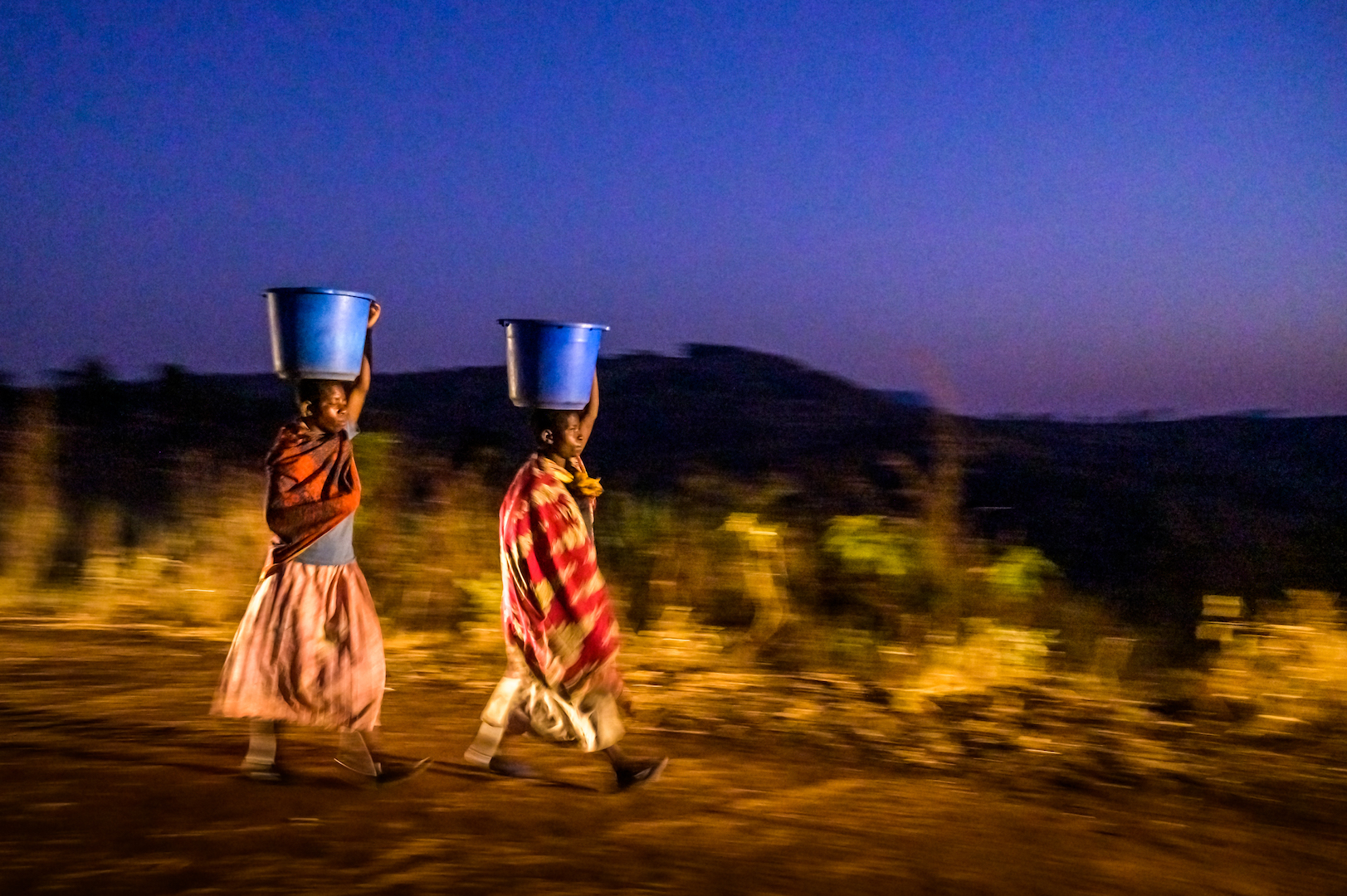
The girls’ mother, Happiness — Chimwemwe in her native tongue of Chichewa — wakes in the dark to make her first walk of the day to collect water under the night sky. She ties her 1-month-old baby, Secret, securely to her back with a colorful piece of cloth, then walks with her twin sister, Gift, in single file from their huts to a stream where as many as a thousand people will collect water and wash clothes from morning until night. Although it is dark, the 26-year-olds don’t need a flashlight. They know this path. They have been walking its treacherous terrain since they were 4.
Their family lives in the Great Rift Valley, the geological marvel that stretches nearly 4,000 miles from Lebanon’s Bekaa Valley in the Middle East to Mozambique in southeastern Africa. The valley, actually a series of adjoining trenches, is the result of a rift: a fracture in the earth that continues to tear open the crust, causing chunks of earth to sink and molten rock to rise in the form of volcanic eruptions. The stream where the family collects water is within the Great Rift. The hills are rocky, the valleys slippery, and the changes in elevation make for a grueling and potentially dangerous climb — especially carrying a heavy bucket of water on your head in temperatures swelling over 90 degrees, your neck and calves aching, sweat trickling into your eyes and momentarily blinding you.
The stars above the path are dizzyingly spectacular, but their magnificence is lost on Happiness. The single mother worries about her house — at only 12 feet across, it’s too small for all four of her children. She worries about leaving Jekina alone every morning — what if someone tries to abduct her? She worries about feeding her son, Beauty, who is staying with his father, her ex-husband, tonight — the growing 11-year-old is always hungry, and there’s only one bag of maize left. She worries about Secret, adorable but fussy. And she worries about Ireen, the daughter who reminds her so much of herself — smart and feisty. How can Ireen reach for the stars in a place where food and water are unreachable?
In the Great Rift Valley region of Malawi, poverty and the lack of clean water create fractures that cut through society — producing rifts in families and communities, and hardships for girls like Ireen.
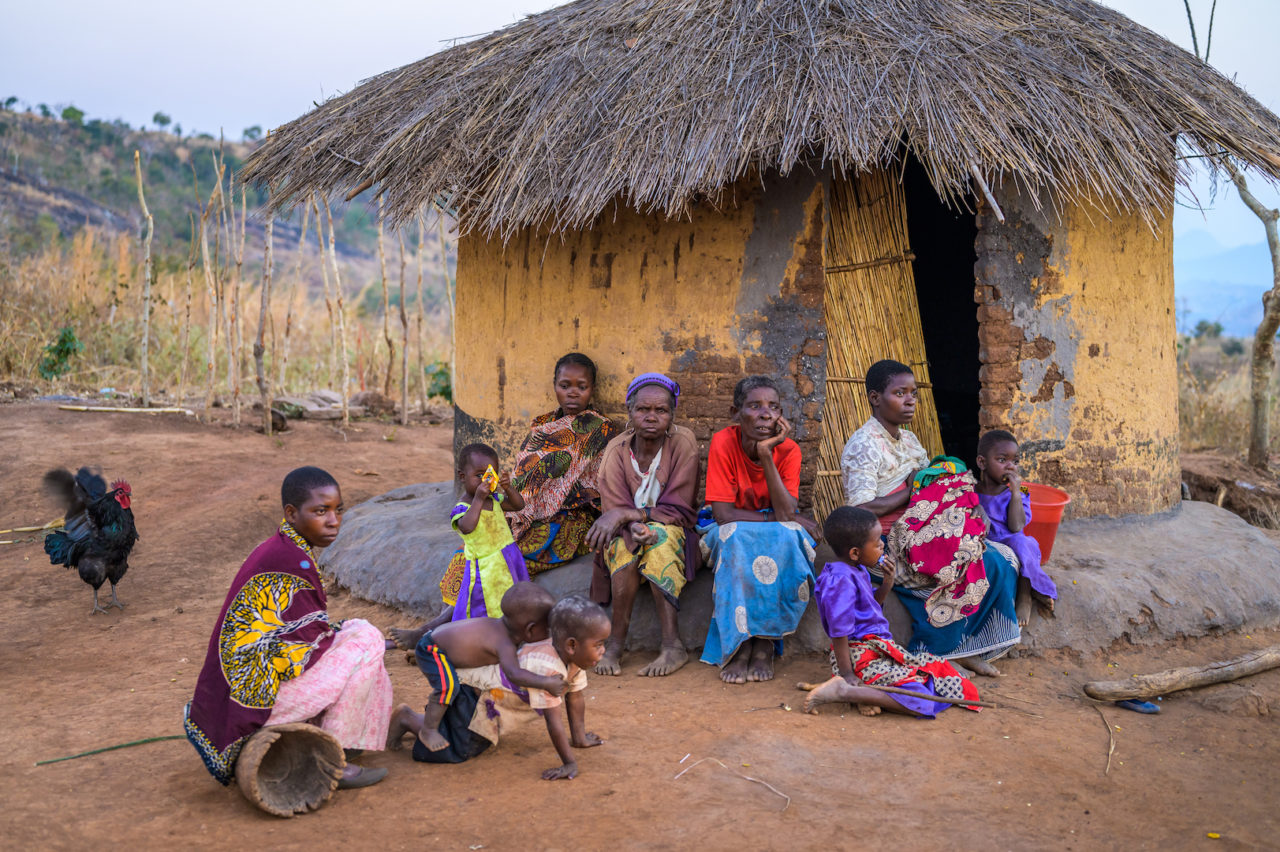
Rifts in children’s lives
When Happiness returns with the day’s first supply of water, she is relieved to find Jekina still safely asleep in her small, round mud house. As the sun rises with a resolve that foretells another hot day, Ireen emerges from her grandmother’s hut. “I wake up happy,” she says, her joy taking the form of a brilliant smile. Ireen’s energy pulsates. Now that it’s daylight, it’s her turn to go for water.
Last year, Ireen asked her mother if she could start gathering water. She saw the weight her mother was carrying, pregnant with her fourth baby, struggling to feed and clothe her children. “I told her she was too young,” says Happiness. “Ireen insisted.” Although it’s a task she volunteered for, it’s not one Ireen enjoys. “It makes my neck hurt,” she says. But for girls in Malawi, carrying water is a rite of passage. “These kids have a heart to work on their own,” says Happiness. “Getting their own water shows independence — that they don’t need their mother to do it.”
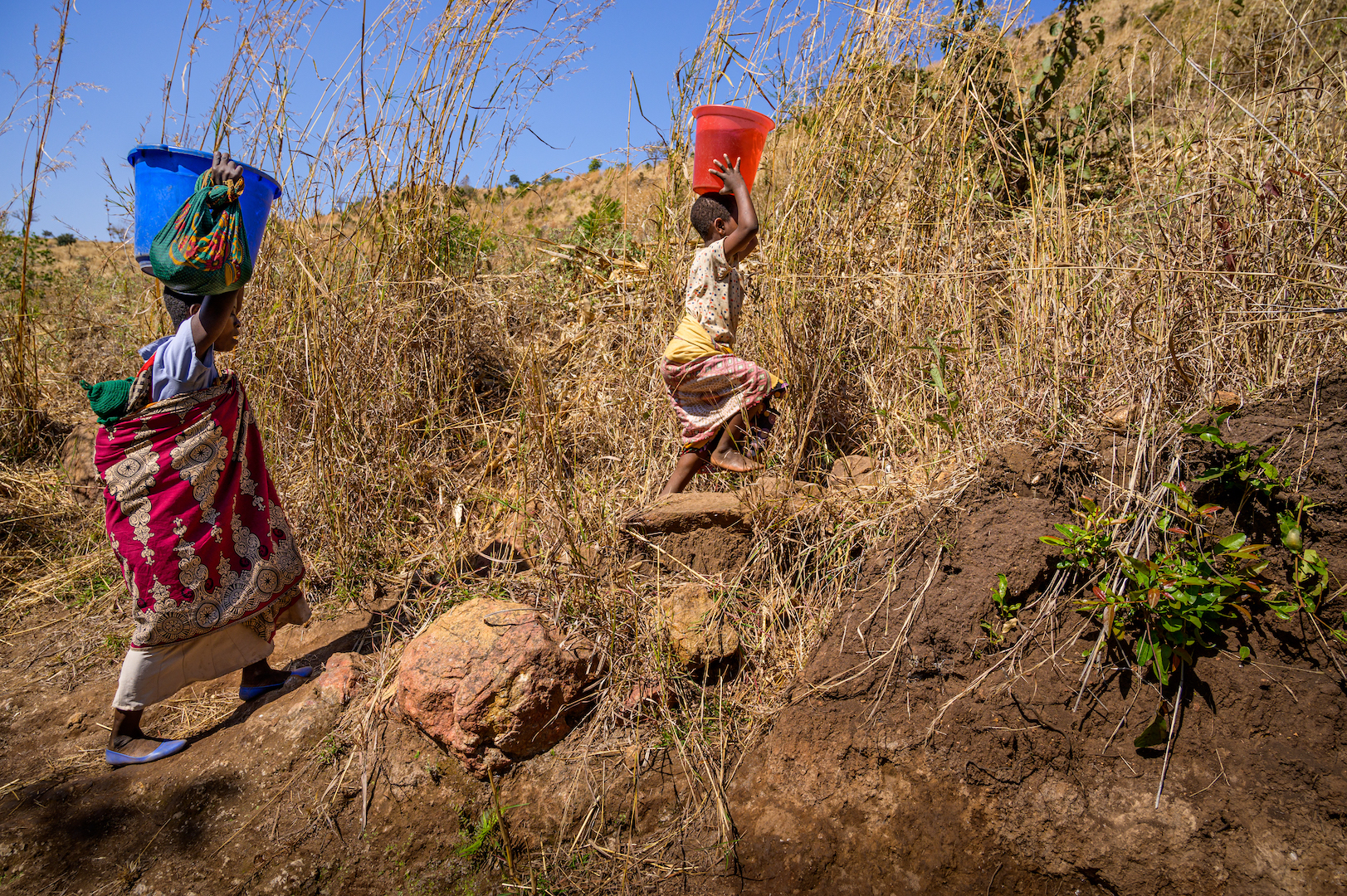
Barefoot, Ireen can balance 20 pounds of water on her head, trying with all her might not to trip and fall. Injury is just one fear. The other is breaking the red plastic bucket. As her mother has warned her on many occasions, there’s no money for another. For us, it would be like wrecking the family car.
Ireen will walk for water up to three times a day, unless she helps with laundry. Then, she will go four times. Throughout the course of their daily water-collecting journeys, Ireen and her mother will walk about 6 kilometers, or 3.7 miles, the average distance women and children in the developing world walk every day for water. It’s best for Ireen to go before it gets too hot — plus, school starts at 7:30. She can’t be late.
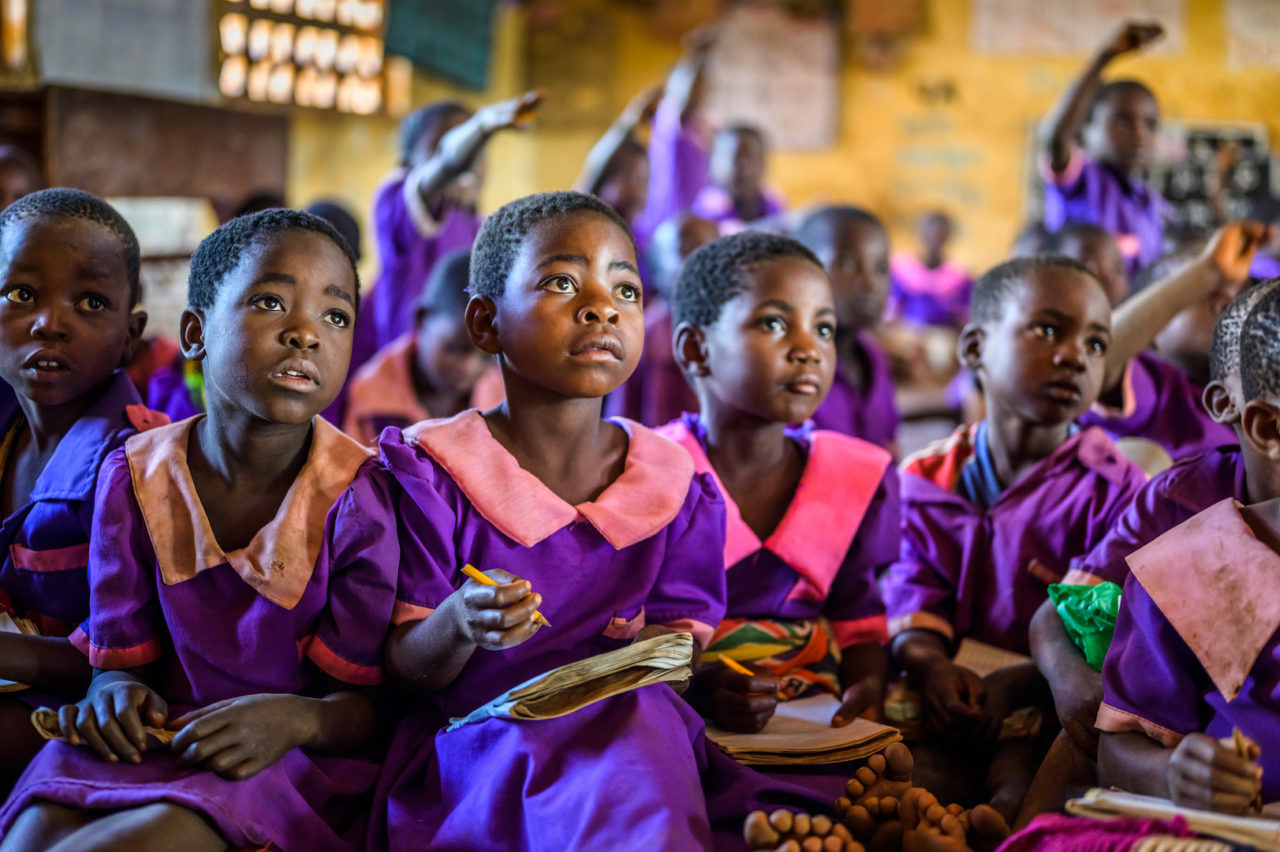
“She’s my favorite,” says Ireen’s teacher, 30-year-old Timale Chisutu. “She is quick to respond. She is not shy when she knows the answer.” Ireen ranks ninth in a class of 157 students, a remarkable feat given her circumstances. “I know how she lives,” says Ireen’s teacher. “She comes from a very poor family. I can tell by her clothes, her uniform, books, pencils, and her body. Sometimes she is very dirty.”
Although Ireen comes to school without having washed, there are times that diarrhea, a result of drinking unsafe water, keeps her away. Diarrhea is a serious issue for the community, says Fenless Chimutu, 34, the nurse and midwife in charge of the local health clinic where Happiness gave birth to Secret. “One of every five patients has loose stools or diarrhea,” she says. “You see it more in young children.” The nurse, who’s been at the clinic for five “tough and difficult” years, sees hundreds of patients every day. “If there was clean water, that number would be reduced to less than half.”
Ireen’s community has never had a borehole well. A neighboring community’s borehole is near her school, and while her community isn’t allowed to draw from it, the children can use it while they’re in class. Ireen prefers the borehole water to what she gets from the stream near her house — she knows the borehole water is clean and the water from the stream is not. “It makes me afraid,” she says. “I’m afraid of the water because I know that worms are going into my body.” Usually bright, Ireen’s countenance darkens. At school, her teacher notices Ireen’s tension and says, “Sometimes she looks anxious.”
Playing helps ease that anxiety, if only temporarily. Ireen and her friends play games like Mira, a game that takes dodgeball to new heights. They attempt to build a tower of rocks while avoiding being hit by a ball made of rags. And there’s Champi — a long jump game played with three sticks that are moved apart to make it harder to jump over them. The only problem with playing games: Ireen gets thirsty. In fact, she says, she is thirsty all the time.
Rifts in families
Growing up in poverty and without a father, Ireen is experiencing a childhood similar to her mother’s. Happiness and her twin never knew their father; he died before they could form any memories of him. They’re not even sure where he is buried. The twins began to carry water when they were young. “We would go one way and then come back tired,” says Happiness. “The next day, we would go back. We started with cooking pots. Then our containers got larger.”
We didn’t have time to play. It was tough for us as children. We were always tired.—Happiness, mother of Ireen
School was a much-needed, much-loved respite for the twins. “I was good at Chichewa,” says Happiness. “I was always the highest in the class. Gift was always in the top five, too.” But, like so many girls in Africa, their thirst for education was dampened by their family’s daily need for water. “We did not enjoy our childhood,” says Happiness. “We would wake up in the morning, go get water, and go to school. Then we would go straight to get water. We didn’t have time to play. It was tough for us as children. We were always tired.” When they were about Ireen’s age, their uniforms finally became too ragged to repair, and they dropped out.
The two girls began working in other people’s fields all day, getting paid in maize — about 10 pounds for four days’ work. They’d also earn a few kwacha — the national currency — by carrying water and making charcoal to sell. Their daily grind was interrupted by a visit from Samuel, the man who would become Ireen’s father.
Samuel’s proposal was no scene from a romance novel. “He said, ‘Is there a woman I could marry in your family?’” recalls Happiness, who was a teenager. “They [her mother and Samuel’s family]made arrangements, and then we got married.” As a dowry — the exchange of money or property for a bride still commonly practiced in many parts of the world — Samuel gave the village chief a chicken in return for Happiness’ hand in marriage and gave her mother 20,000 kwacha (about $27). Happiness moved to Samuel’s village to start her new life, which eventually included giving birth to their children, Beauty, Ireen, and Jekina.
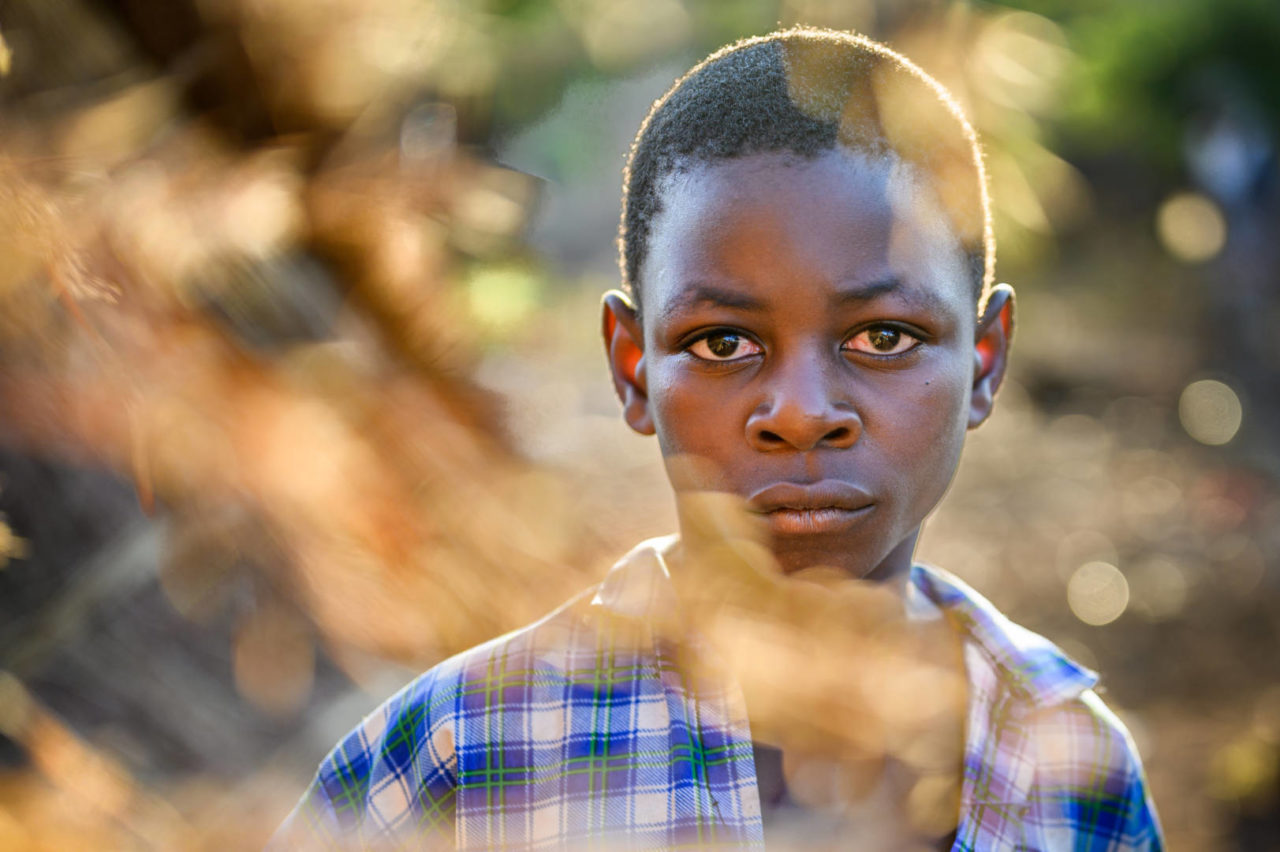
Happiness hoped that Samuel would take care of her, but instead he became jealous. “When I went to get water, he would think I was out meeting other men,” she says. “He would be mad and beat me up.” Just as water played a role in Happiness’ dropping out of school, now it was threatening her marriage. “It was really an issue, not just for our marriage but for everything,” she says. “Women have to spend so much time getting water that we can’t focus on other things, like our families.”
Happiness finally shared about her troubled marriage with her mother and moved back home. She remarried a year later and became pregnant with baby Secret, but after an argument about money, “He took his things and left,” says Happiness. Life wasn’t much better for Gift, who is now divorced, having experienced the same issues as her sister — fights about money and the issues that come with not having clean water nearby.
The hardest part about staying here is being hungry.—Beauty, brother of Ireen
The family is fractured, just like the land on which they live. Beauty bounces between Happiness’ and his father’s homes. He likes staying with his mother, but it comes at a cost. “The hardest part about staying here is being hungry,” he says. “It’s different at my father’s. At my father’s, I get to eat.” But at his father’s house, he doesn’t feel loved. “There, I don’t get school supplies or support.”
The girls don’t visit their father. “The girls don’t want to go,” says Happiness. “When they go, they don’t get love, care, or support from their father.”
Rifts in communities
Just as it divides families, the lack of water creates rifts within communities. In Malawi and around the world, the lack of sufficient water leads to fights at water sources, according to a U.S. Agency for International Development brief. The thought of Ireen becoming involved in a physical altercation frightens Happiness. “I fear that she will have to fight her way for the water,” she says. It’s not an idle fear; she’s seen it happen to others.
“Sometimes you’ve waited, and people just cut in line,” she says. That’s when the punching begins. In a neighboring community where water is similarly limited, the chief instituted a one-bucket rule. “Filling too many buckets delays everything,” says M’mangepo Baifoti, 47, who goes to church with Happiness. But one day, a woman brought three buckets to fill. She wanted to wash clothes so her family was fresh and clean for church. “People got mad and threw buckets at each other,” says M’mangepo.
“It was bad,” says Phillipo Mankhanibo, 41, the chief of that village. “There was fighting and there was blood. They broke each other’s buckets. They had to go to the hospital.” He fined two women a chicken. “It’s a big fine,” says Marriata Dzimbiri, 25, another church member. “A chicken costs 3,000 kwacha (US$4) in town. It’s hard to pay that.”
The chief settles a lot of disputes over water. “The area is so big that there’s a lot of water-related conflict — most of it, in fact.” And if there were clean water? He sighs. “My life would be much easier.”
The chief of Ireen’s village could no longer support himself there and had to move to another village for work. “He was a good chief,” says Happiness. Now, she says, a lot of conflicts occur between neighbors that only a chief can solve. “If our chief comes back, families will be more stable,” she says. Stability that could lead to less hunger. Many families are eating one — maybe two — meals a day. Ireen and her cousins try to help their family, spending some afternoons chasing down mice and giving them to an aunt, to boil and remove the insides before selling them on sticks at the market for 50 kwacha each, about 70 cents.
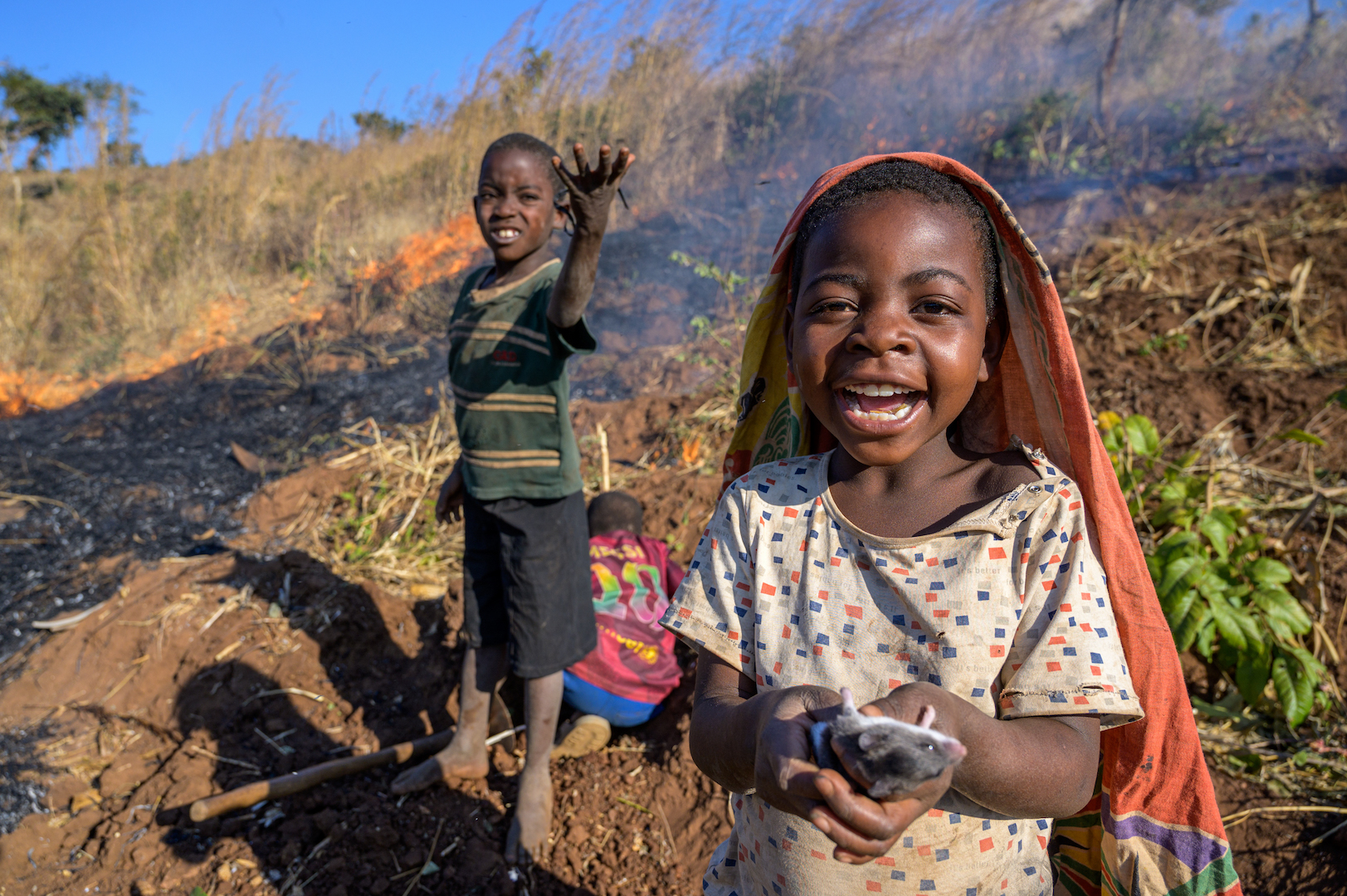
Mending the rifts
The rifts around Ireen may seem insurmountable. In fact, Malawi ranks as one of the world’s poorest countries, behind Burundi, the Central African Republic, and the Democratic Republic of the Congo, according to the International Monetary Fund.
But a group of strong women among World Vision’s local staff are committed to repairing them. Mereena Mhone John, 41, manages child sponsorship in Ireen’s community with empathy and vision for lasting change. She’s well prepared for the work, holding degrees in arts and humanities, development, and a master’s in leadership and change from universities in Malawi, South Africa, and the United Kingdom.
Mereena has witnessed the changes child sponsorship brings. “Children are encouraged to go to school and learn how to read, write, and attain skills that will help them when they grow up,” she says. They also participate in programs around health, water, education, and spiritual nurture. And, just as importantly, says Mereena, they’re encouraged to communicate with their sponsors through letters.
The letters the children receive from their sponsors become treasures. “They know that someone out there loves them,” says Mereena.
She’s also seen how the impact of sponsorship reaches beyond the friendship between children and sponsors. “Parents also benefit from sponsorship because there is a relationship, which is built between the sponsor and the whole family,” she explains. And through economic empowerment programs funded by sponsorship, parents get support to start small businesses and establish better household finances. The increased income means they’re able to send their kids to school, put nutritious food on the table, and provide choices for the future.
God created water and when we are drilling, we make a deliberate effort to seek guidance from that same God to provide water.—Liddah, World Vision technical advisor
One of the most immediate impacts sponsorship can have on kids’ health and overall well-being is funding borehole wells and water systems. Once a community has easy access to clean, safe water, they no longer suffer from water-related diseases like diarrhea and cholera — and women and girls are no longer trapped in the cycle of walking for water.
Working alongside Mereena to bring that reality to Ireen’s community is Liddah Manyozo, 37, a World Vision technical advisor to a team of drillers who are charged with bringing water to communities across Malawi.
“My hope for Ireen is that one day she will have a borehole in her village with safe water,” says Liddah, who also carried water as a girl — “it was a part of life,” she remembers. For Liddah, who holds a bachelor of science in agriculture with an emphasis on nutrition, finding clean water is not just a technical exercise, but a spiritual one. “God created water,” she says, “and when we are drilling, we make a deliberate effort to seek guidance from that same God to provide water.”
Rounding out the team of strong women in Ireen’s life is Irene Chongwe, 33, a World Vision staff member who teaches families how to stay clean and healthy through sanitation and hygiene practices. Irene started carrying water for her family at the age of 10, when her mother died. Although she moved from home to home after her mother’s death, she clung tenaciously to the chance for an education, eventually earning an advanced diploma in community development from Malawi Polytechnic. As an expert in sanitation and hygiene, Irene has her work cut out for her: Only 50% of the families in this community have latrines and hand-washing stations.
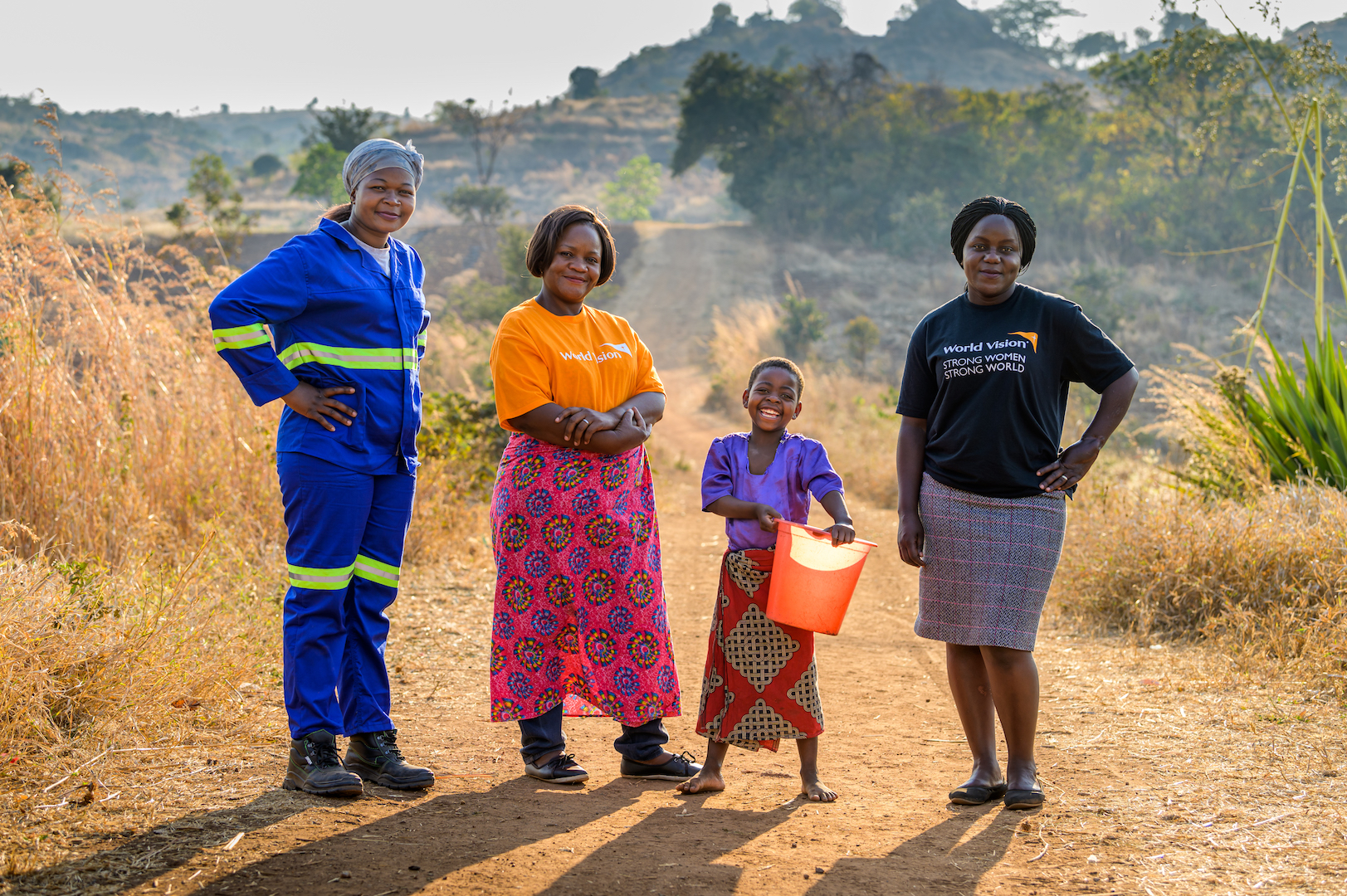
World Vision staff play a special role in the lives of the children they serve, and Mereena knows it’s particularly important for them to see women in leadership. “We are like role models to Ireen,” says Mereena. “She can have hope that she can make it.”
Together, the three women, World Vision staff, and community members are working diligently to empower Ireen and other children like her to become change-makers. “World Vision focuses on children. Children are the future of this country,” Mereena says. “So working with children, I know I am contributing to the development of this country.”
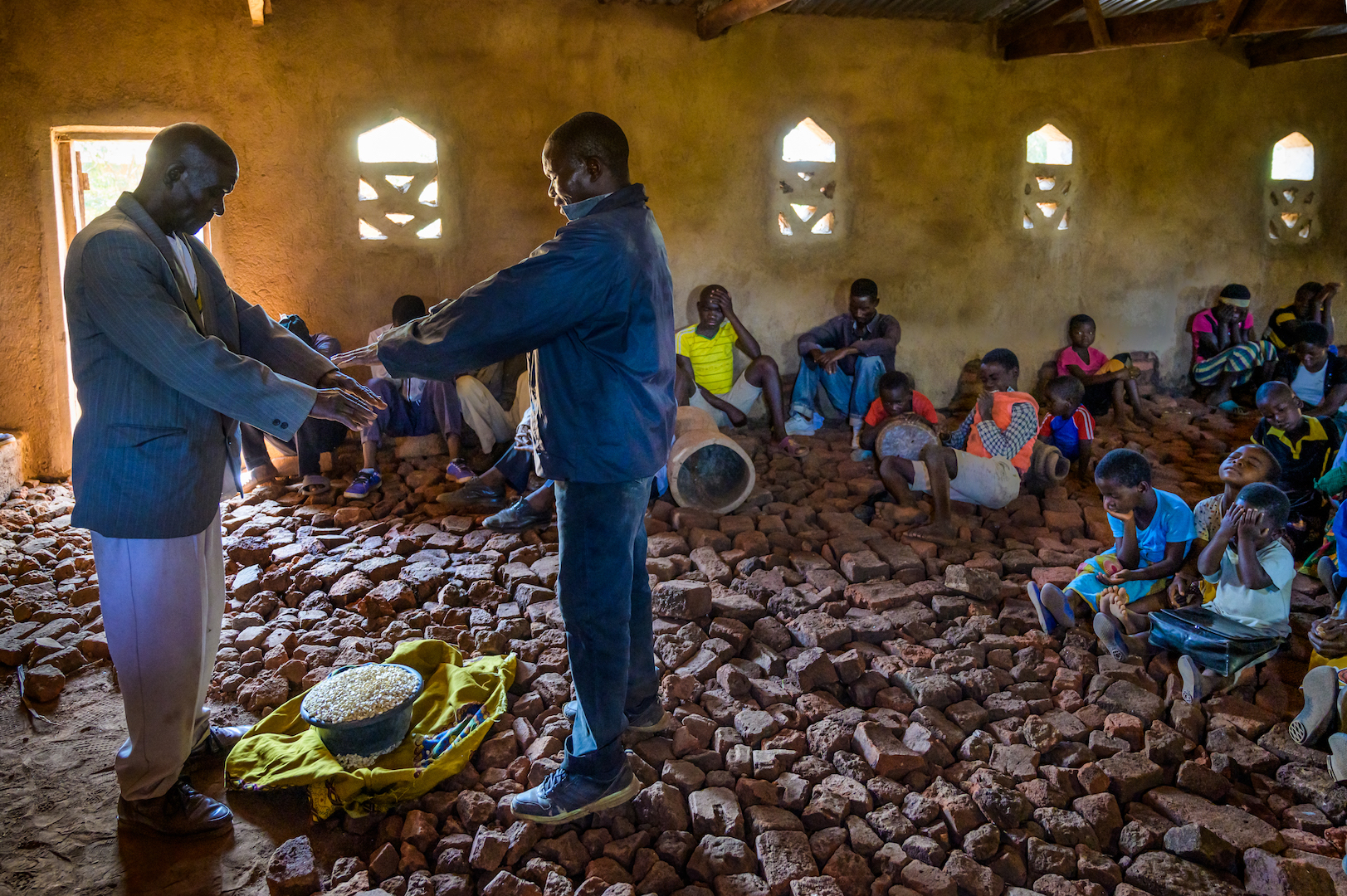
Hope in the Great Rift Valley
It’s evening in the village. Gift’s sons are crab-walking in the dirt. Jekina is dancing to music of her own making, and Ireen is playing with her friends. Beauty is at his father’s house; otherwise, he’d join in the fun.
Things have taken a positive turn: Happiness has called the chief and told him that World Vision has come. “They want to meet with him,” she says with a smile, holding Secret in her arms. “He’ll be here on Tuesday.” Working with the chief — even if he has moved away — is crucial to ensure that any progress made is lasting.
The idea of a borehole in the community is exhilarating. “It would bring so much change in my life and the community,” says Happiness. “It would mean the end of walking for water. We would be able to rest. We would be able to work in the garden. My children could play and do their schoolwork.”
She’s equally intrigued by the idea of child sponsorship, especially for Ireen. “By being in the program, it would help Ireen know that she is remembered,” she says. “It would help her work harder in school and have a better future.”
A gentle breeze blows through the palm trees and the clouds turn the color of roses as the sun fades. Orion will soon appear. The rooster struts by, preparing for tomorrow. He needs to be ready. Morning comes early in the Great Rift Valley.
How you can help children like Ireen
- Learn more about how you can be part of the movement to end the global water crisis by 2030.
- Join us in prayer that more and more communities would get access to clean water.
- Walk or run the Global 6K for Water on May 16, 2020, and provide life-changing clean water to one person in need. You’ll get a race bib with the picture of a child who’s benefiting through World Vision’s water projects!
- Give a monthly gift to provide clean water to communities in need. Your faithful support will empower kids and families around the world to create lasting change.
Charles Kabena and Wezzie Nungu of World Vision’s staff in Malawi contributed to this article.
